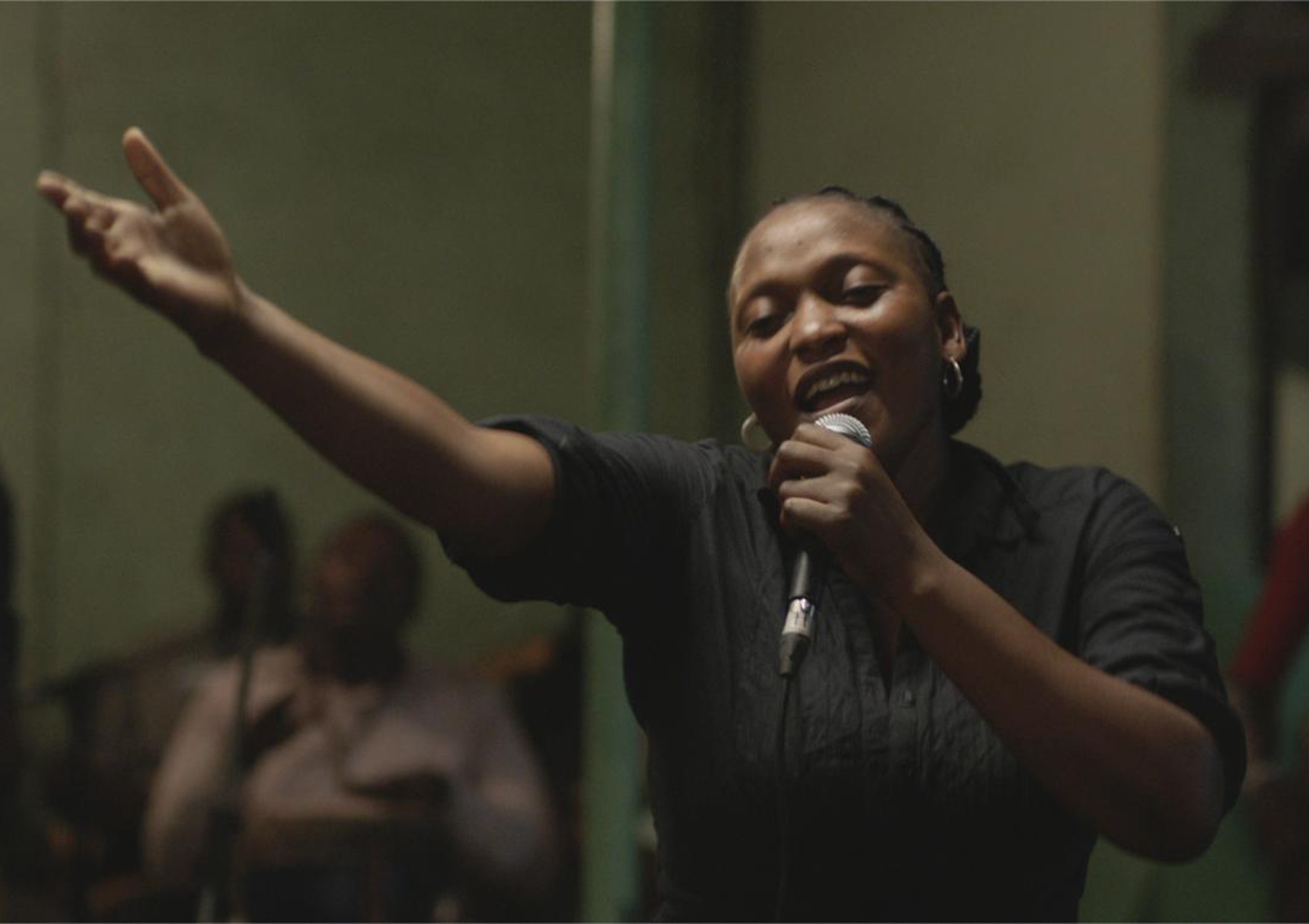
- Golden Globe Awards
Félicité (Senegal/France)
Kinshasa, the capital of the Democratic Republic of Congo: city of twelve million people. In one of its many bars, Félicité sings late into the night, her haunting voice resonating far beyond the assorted patrons, into the mysteries of the night. It’s a way to escape her daily worries, her bruised existence.She is a proud and resilient single mother, whose life takes a dramatic turn where her 14-year-old son Samo is in a serious motorbike accident. He must be operated on right away or risk having his leg amputated. But the surgeon asks for the money up front. Swallowing her pride, she embarks on a desperate quest trying to get the cash, running around in the stifling heat and the chaos of the city, determined to succeed, even after being humiliated and ridiculed, never giving up, even if at times she seems on the verge to. Still, she continues to sing. The music becomes the vector to channel her unsaid emotions, to deal with her inner turmoil, the uncertain future.Franco-Senegalese director Alain Gomis can be considered the heir of Ousmane Sembene and Paulin Soumanou Vieyra, considered the founding fathers of Black African Cinema, which has kept Senegal on the world cinema map. Winner of the Silver Bear at the last Berlin Film Festival, Félicité is his fourth picture and was shot entirely in the Lingala language. “At the origin are real people,” he says.” Strong women I am close to and who don’t accept compromise, who tackle everything head on and who refuse to give up no matter what. I have a certain admiration for this rectitude while, at the same time, reflecting on the notion of bending life to one’s will. I am interested in the dialectic of struggle and acceptance, a common theme to all my films.”Having never been to Kinshasa prior to filming, he was concerned. “It has always attracted me and at the same time frightened me. I see it as an extremely contradictory place – a place of potential renewal or definitive defeat. There is a fake article in the constitution of the country. Article 15 saying “You are on your own.” It seems to me my characters in the film, without any structure to support them had almost the strength of mythological beings.”As Félicité, Véro Tshanda Beya Mputu is a stunning discovery, a mesmerizing and formidable presence, her face filmed most of the time in extreme close ups, registering interiorized emotions of magnificent and profoundly touching depths. The social realism approach and the often-restless hand held camera work is reminiscent of the Dardenne brothers’ style. And music plays an essential part in the film, defining its structure and adding to the narrative with a uniquely distinctive flavor. “It came with Kasia Allstars, a conglomerate of four different groups that were playing in the bar we were filming,” explains Gomis. “It is traditional music and music that becomes urbanized, that smells of grease and the forest. Transcendental, electric, almost rock or electro, this music links tradition with modernism and, as I see it, embodies the African city.” Giving this simple story its universal scope and appeal. With a bittersweet happy ending as a message of hope.

